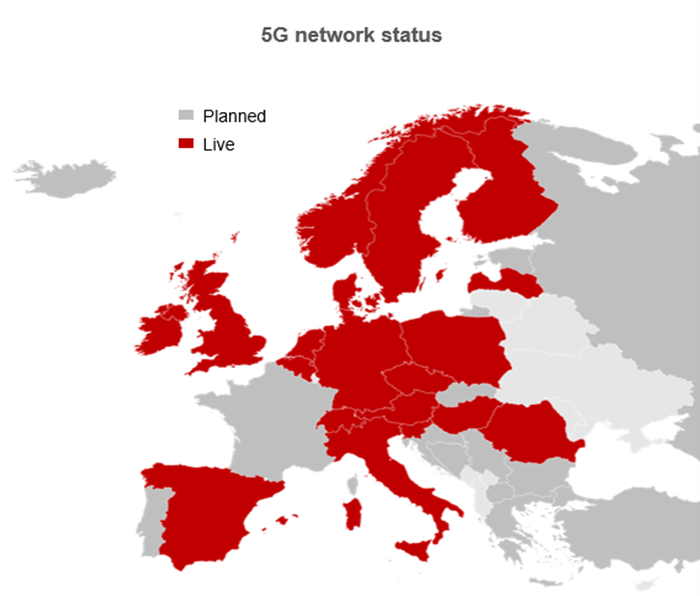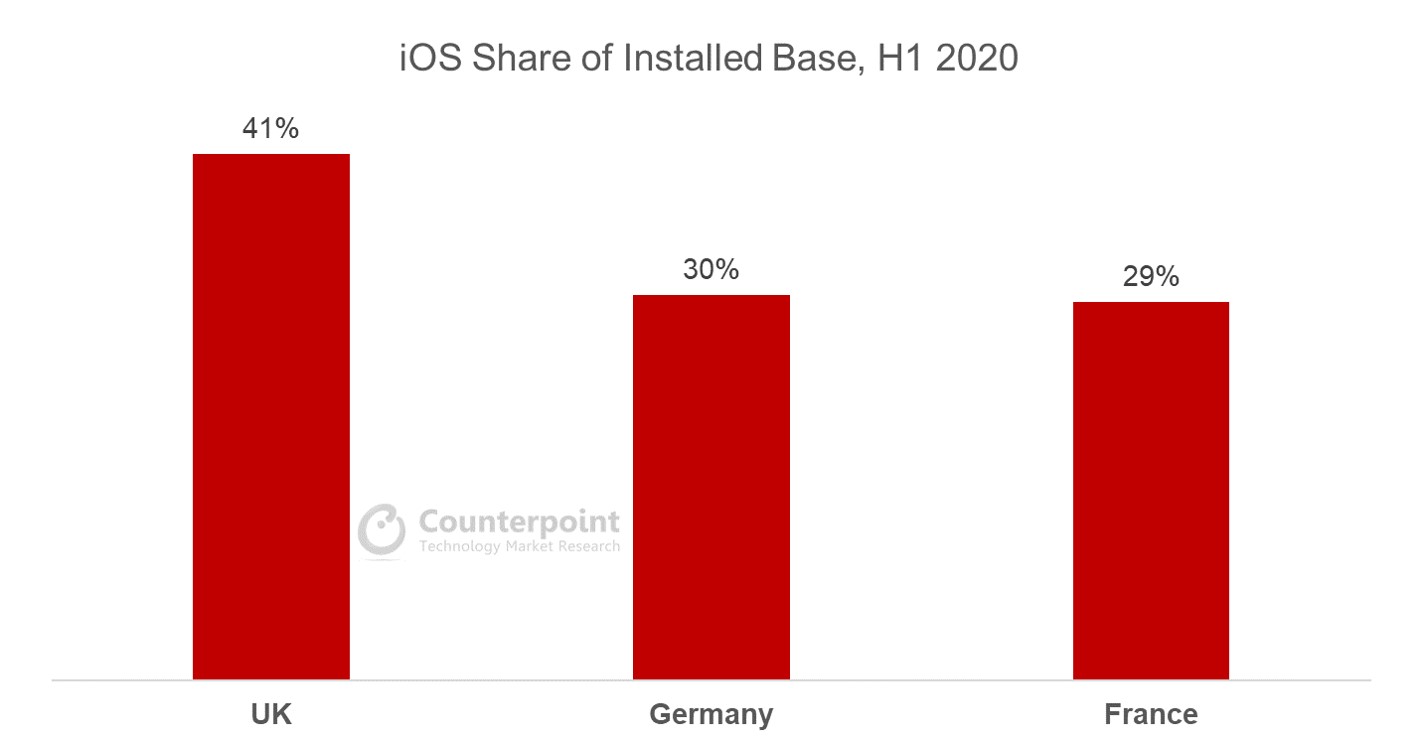5G rollouts are gathering speed across Europe. There are currently 45 live 5G networks across 20 countries in the region[1], including four markets with “full” launches – i.e. markets where all incumbent operators have launched 5G networks (Austria, Finland, Spain and the UK). 32 more operators in a further 13 countries have announced plans to launch, leaving only a handful of markets (mostly in Eastern Europe) yet to board the 5G train.

However, despite the good progress being made in terms of actual launches, coverage is still patchy. In the UK for example, although all operators have launched 5G, it is only available to around 30% of the population. EE has just switched on 5G in another 12 UK towns and cities (bringing the total to 112) which will give the current reported coverage number a bump, but it will still be far below 4G levels. It is a similar situation in Spain, despite Telefonica’s promise that 75% of the population will have access by the end of this year.
This limited coverage may be one of the reasons why 5G device sales are yet to take off in Europe. Across the region, just under 2 million 5G devices were sold in July, which is 11% of the total. While this represents steady growth (up from 7% in May), it is still a long way from what is expected from a technology that has now been around for over a year in many markets. Up until now, operators have mainly concentrated their 5G rollouts on urban centres. But the current COVID-19 situation means many people are avoiding the cities and working from home, typically in suburban or even peri-urban areas, where 5G coverage has been less of a priority. Most operators have coverage tools on their sites for potential customers to check if they live within a 5G area, so why would people want to upgrade to 5G if they can’t access it at home?
Another reason is the spread of misinformation and conspiracy theories about 5G, ranging from health concerns over the frequencies used in 5G radios (demonstrating a lack of understanding of the electromagnetic spectrum) to the notion that 5G is the cause of the COVID-19 pandemic (demonstrating a lack of understanding of physics, biology, reality, you name it). However ridiculous these ideas are, they have the power to sow doubt in people’s minds, which is not helping at all.
The biggest reason, though, is a dearth of 5G devices. The Samsung S20 family has done well, selling almost 2.5 million units since launch. However, there are not really any other big-name flagships available: the Huawei P40 is struggling due to the lack of GMS and pervasive anti-China sentiment, while other brands like Xiaomi, OnePlus and OPPO are suffering from a lack of brand power.
This all changed on October 13 when Apple finally unveiled the iPhone 12 following COVID-19 related delays. Apple’s latest device is 5G enabled, meaning that all major vendors now have a 5G device in their portfolios. More importantly though, a 5G iPhone is a huge boost for markets where Apple is particularly strong. In the UK, Germany and France for example, iPhones account for 30-40% of the installed base, and the share is typically even higher among high value users: the key target audience for 5G. This is a significant proportion that has so far remained untapped by 5G.
 One disappointment, though, is that mmWave is only supported by US models, which means Europeans will have to make do without the fastest 5G speeds. Of course, most people who buy the iPhone 12 will do so because it is the latest iPhone; the fact that it is 5G enabled will, for most, be a bonus. Rather tellingly, in a recent Global Wireless Solutions (GWS) survey, nearly half of US iPhone users believe their device is already capable of 5G.
One disappointment, though, is that mmWave is only supported by US models, which means Europeans will have to make do without the fastest 5G speeds. Of course, most people who buy the iPhone 12 will do so because it is the latest iPhone; the fact that it is 5G enabled will, for most, be a bonus. Rather tellingly, in a recent Global Wireless Solutions (GWS) survey, nearly half of US iPhone users believe their device is already capable of 5G.
But regardless, there is significant pent-up demand from Apple customers putting off upgrades until the latest device launches, presenting a good opportunity for Apple to have a large upgrade cycle. European operators will therefore likely put in a lot of effort (i.e. heavy promotional activity) to upgrade their iOS installed base to 5G. This in turn will give 5G, and indeed the whole European smartphone market, a much-needed shot in the arm even as the region struggles with a second wave of the COVID-19 pandemic.
[1] GSMA Intelligence

